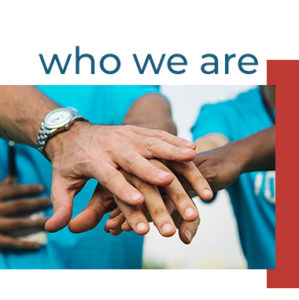Getting On Board: What You Need to Know Before Joining a Board of Directors
Chances are, if you’ve built a successful business or are a noted authority in your field, there will come a day when you will be asked to lend your expertise to the community by serving on a nonprofit board of directors. While it’s an honor to be invited to join a nonprofit board–and while you may be passionate about the nonprofit’s cause–it’s wise to pause before you “jump on board.”
The role of a nonprofit board member is not just a chance to add another achievement to a glowing resume. There are legal and fiduciary obligations that might set one up for personal liability. There are also time commitments that might put pressure on one’s work schedule, family life or professional career. There’s also the matter of personal financial support expected from board members.
We talked with nonprofit experts across the North Bay about the roles and responsibilities of being a nonprofit board member–legal, financial and personal obligations, as well as potential entanglements. Here’s what they cautioned–and what they encouraged.
It’s a business
It might be a nonprofit, but the bottom line is: It’s a business. No matter the cause–art, rehab, education, health, food–a nonprofit in California is a California corporation.
“People join to make a difference for their community or their particular passion,” explains Daryl Reese, founder of Daryl Reese Law in Santa Rosa, a firm specializing in nonprofit and business law, estate planning and Internet privacy protection. “But most board members, unless trained, don’t realize they are becoming a director of a California corporation. And that means they have the same responsibilities [as for-profit boards of directors]. They need to act in the best interest of the organization, know what they are doing so the organization runs well and protect the organization from liability exposure.” And they need to have a serious understanding that if the organization is not protected from liability exposure, the directors may well suffer personal liability.
“One of the things I find is that people seriously have a passion about a nonprofit, but no clue what it means to be a board member,” says Chuck McPherson, a partner in Leap Solutions, a business management consulting firm in Santa Rosa that specializes in organizational development, human resources, executive search and recruitment. “Board members are fiscally responsible. They cannot hide behind ‘I didn’t know,’ or ‘I didn’t understand.’” Before joining a board, it’s important that one “do due diligence about the agency. Know who is on the board, what the financials are, what the group’s history is and what its plans are for the future.” In other words, ask good questions.
Reese outlines four specific duties that a board member must adhere to under California Corporation law: duty of care, duty of inquiry, duty of loyalty and duty to invest wisely and follow investment standards.
Duty of Care
Reese puts it simply. “If you were running your own corporation, what would you be doing to make sure you are doing what you’re supposed to be doing and not getting into trouble?”
Many times, board members will relinquish their responsibility to the executive director because they don’t realize it’s their job, Reese explains. He notes that board members “always need to be thinking” about the services the organization is offering and what could possibly go wrong.
“An example is an organization that distributes food to seniors at home using volunteer drivers,” he explains. “Lots of people are retired and willing to do this. And it’s an awesome service. But the board probably isn’t thinking of the driver being unsupervised in the homes of vulnerable people. They need to make sure policies are in place to do background checks on the drivers–both criminal and driving–because board members should always be thinking of all the things [involved with their services] to make sure the organization is run in a way that everything is being cared for.”
Duty of Inquiry
“Directors need to be aware of what’s going on,” Reese says. “Is something suspicious in the financials? Are there other things that should be questioned?” This is why Reese believes it’s so important that a board be diverse and include people with different perspectives. “Challenge assumptions,” he says, “and don’t worry about hurting someone else’s feelings.”
Often, board members are reluctant to add their voices to the mix when issues are discussed because they are afraid of recrimination. But that doesn’t result in the best service to the organization.
Being on a board does not mean your ideas are always going to be accepted by other board members. “A board’s job is to do what’s best for the organization,” says Linda Jacobs, CEO of the Center for Volunteer & Nonprofit Leadership, with headquarters in San Rafael. “As an individual board member, one isn’t always going to win every vote or decision. When you don’t, it is still, ‘Go team!’ If you didn’t vote for it [a motion], don’t go out into the parking lot and start talking to everyone about why it’s wrong. You’re all on one team and you’re going to win some and lose some. Every board vote doesn’t need to be unanimous.”
At the same time, board members should try to avoid acrimonious situations. “If there are internal control issues on a board, there’s a chance board members could end up suing each other,” says Reese, noting that it’s more common than an outsider suing a board.
Duty of Loyalty
Board members must accept that their loyalty is to the organization. Often there are conflicts of interest between board members and the organization they’re serving. When these conflicts arise, “all must be resolved in the best interest of the organization,” says Reese. For example, Reese explains, “let’s say someone on a board is a painter or married to a painter and the organization’s building needs to be painted. Bids are coming in at $20,000, but a board member’s spouse will do it for $10,000. That’s a conflict of interest and it needs to be disclosed, and the board must act to resolve it in the best interest of the organization. The organization must always come before the personal interest of a board member.”
Jacobs notes that sometimes conflicts of interest occur when board members are also clients of the organization or parents of children who use the organization’s services. “Board members must put the needs and interests of the organization before their own personal agenda instead of that of the organization,” she says. If such situations exist, the board must address them. “We all live and work in communities and want to avoid confrontations and hard conversations,” Jacobs says. But if conflicts persist after attempts to resolve, offending board members “have to be removed or it will bring down others and harm the culture of the organization.”
Duty to Invest Wisely
Nonprofits get donations, receive grants and endowments, and have fundraisers that result in amassing assets. Monies received must be invested wisely and board members have a duty to follow investment standards, Reese says. “There’s a Uniform Prudent Management of Institutional Funds Act. If you’ve got organizational assets–let’s say $1 million–and you’re not going to use that money immediately but sometime down the road, you have the duty to invest and a duty to maximize those funds in a prudent way. So there are rules in how you invest. You can’t invest in something speculative; you must be a good steward of the assets of the organization.”
Legal Liability
All of the duties outlined above feed into why individual board members can face legal liability if something goes wrong. “You can have personal liability exposure for making bad decisions or failing to make a good decision as a board member,” Reese says. “So, if somebody can sue me, as an individual, for sitting on a nonprofit board, I want to make sure I’m doing my job right.”
Or, think of it this way, adds Reese: “I’ve worked hard not to give my money away to some plaintiff who was the beneficiary or recipient of a nonprofit organization that I was working with to try to do good things and make a difference in the community just because I didn’t show up to board meetings.”
For example, if a board member has special knowledge or expertise (legal, contracts, insurance, etc.) and doesn’t speak up when a critical question comes before the board or if they fail to show up at board meetings when important issues are discussed that relate to the board member’s body of knowledge, then the board member is breaching the duty of care and can be sued individually by someone harmed by the board member’s lack of participation, Reese explains.
“It’s kind of a mind-blower,” he says. “If you have special knowledge you didn’t share or you didn’t show up at a board meeting where you may have swayed the decision on something in your area of expertise, you’ve got personal liability exposure for that. How many times are people being sued for that? I really don’t know, but it only takes once.”
The bigger issue to Reese, is the misnomer that if an organization files articles of incorporation, board members are protected as a corporation.
“That’s just not true,” he asserts. “When we form a corporation, what we’re doing is creating a new legal person. And we’re saying to the world that this legal person [the nonprofit group] is going to do all the decision making and all the acting for the service they are going to provide.”
A veteran of nonprofit food bank management, Reese uses a food bank example. Food banks rely on donated food. “People could eat the donated food and get sick and die,” Reese says. The food bank can be held liable. At the same time, the food is kept in a large warehouse where there are forklifts, slippery floors and the potential for lots of liability exposure. So the food bank files articles of incorporation under the idea that it will save them from liability and yet they don’t really follow the rules for how a corporation is run.
“A food bank [or any organization] cannot just file articles of incorporation, adopt bylaws and hold board meetings where the directors hear glowing reports of how many people they’ve fed that month while not really following the rules for how a corporation runs. That renders the corporate cover almost meaningless,” says Reese. “The filing of those documents will not protect them from personal liability exposure.”
Passion, Time and Commitment
If you’re considering joining a nonprofit board, the legal liabilities described above may give you pause. But there are other aspects of nonprofit board membership that should also factor into your final decision.
The first–and perhaps the overarching consideration–is whether you are passionate about the vision and mission of the organization.
Herman G. Hernandez, executive director of Los Cien, a Sonoma County nonprofit dedicated to elevating Latinx issues, pride and leadership, has served on the boards of multiple Sonoma County nonprofit organizations and is also a school board trustee for the Sonoma County Office of Education. With wide experience in nonprofit governance, Hernandez knows firsthand the need for board members to be invested genuinely and passionately in a nonprofit’s vision and purpose.
“Without that spark, you’re not going to be super-engaged and involved,” he says.
Jacobs also cites passion as a top indicator of an involved, responsible board member, considering it to be the underpinning of an effective and well-run organization.
And, as Reese has pointed out repeatedly, participation and involvement are paramount for a board to protect the organization.
When it comes to commitment, Hernandez likes to quote his mentor, Willie Tamayo, founder of La Tortilla Factory, who recruited Hernandez to join his first nonprofit board, the Elsie Allen High School Foundation, right out of college.
“Willie always said, ‘We’re asking you to invest either your time, your talents or your treasures. Not all three, but if you can do all three, that would be amazing,’” Hernandez recounts.
“He didn’t want to see people unable to join the foundation board because they couldn’t raise the money required to join the board. Willie thought it was important for people to invest their time at fundraisers, community events or by using their talents, doing such things as writing white papers or helping set policies, developing a website or creating marketing materials.” In other words, it’s not all about the money you bring to the table, it’s also about the resources and expertise you can lend to improve the organization.
“When I’m recruiting board members, they have to be passionate about the cause, they have to be able to make the majority of the meetings and they have to invest some sort of time, talent or treasures to the organization so it’s a mutual relationship,” Hernandez says.
Jacobs notes that attending board meetings is critical, but so is being prepared–taking the time to read materials sent to the board in advance of meetings so one can fully participate and concentrate on strategic issues brought to the board’s attention.
No Time, No Play
You might have the passion. You might be willing to serve despite potential legal liabilities. But in the end, our experts believe time is often the biggest determinant when it comes to deciding whether to serve on a nonprofit board. Time is a major personal investment and can carve into family or business/work hours, therefor one really needs to assess if they are willing to dedicate those hours to the organization.
“Some people just don’t realize or are too ambitious and take on way more than they can chew with their personal lives, their business lives and their civic involvement,” Hernandez concludes. “They mean well, but they don’t have the time to show up for the meetings, they don’t attend the community events, and it’s almost like their name is on the paper [board roster], but they’re not really doing anything. The worst board members are those who mean well, but don’t have the time to invest into the organization.”
Or, as McPherson succinctly sums it up, “Don’t accept it [the board invitation] if you don’t want to dedicate your time to it.”
All Things Considered
The nonprofit experts we talked with were adamant that being on a nonprofit board is rewarding and a great way to give back to your community. But it’s a much more serious call to service than most fully understand.
“This is serious business,” Reese summarizes. “And it needs to be taken seriously.” When boards conduct themselves in an appropriate manner, “so many more people will be served; so many more people will benefit.” And the community will be much stronger as a result








